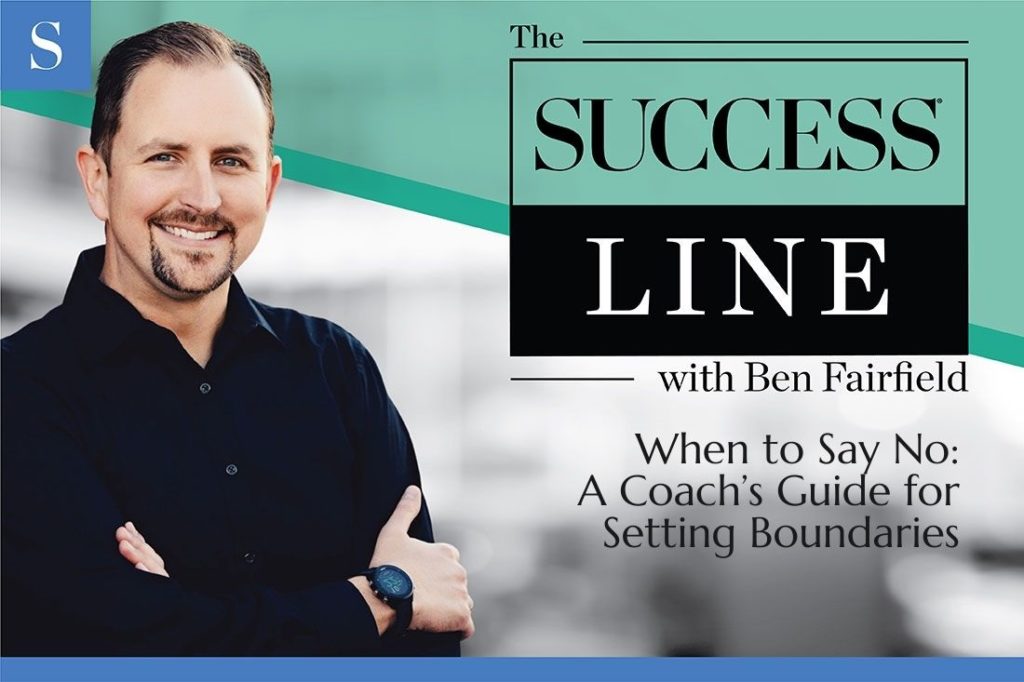On the SUCCESS Line I spoke with Lisa, who is currently at a crossroads in life many of us will face. Although Lisa enjoys running a prosperous real estate business along with engaging in several volunteer commitments, in the past few years her life has evolved with the birth of her first grandchild. Now she wonders if being so active in these arenas is what she ultimately wants, and if it will provide her the most happiness.
Have you felt torn about how you spend your time? Have you said yes to so many commitments—personal and professional—that you feel stretched too thin, and still don’t have enough time or energy to address something you’d really like to do?
Let’s dig into how to make sure you’re pursuing what you want to be doing. After all, making good decisions on how to be selective with your commitments today can multiply your time tomorrow.
What saying no accomplishes.
Lots of people on the outside looking in at those who have reached that apex of success fail to realize why these individuals achieved those heights: they knew the power of saying no. Saying no to a lot of good things enables you to say yes to something great. It’s important to grasp the difference between what is good versus what is great for you. If you say yes to too many good things, it can prove detrimental because it takes time and energy away from the one or two great things that could be more in line with what you really want.
Define your purpose and ensure opportunities are in alignment.
During our conversation, we honed in on what drives Lisa, which is sharing her optimism and shining a light for others. With that in mind, she was better able to answer the question you should pose when determining whether to take on a new opportunity: Does this fall in line with what drives you, aka your purpose?
For instance, are you weighing whether to take on an additional volunteer commitment? It might hold true that the organization is a wonderful charity, but if it doesn’t get you closer to your purpose, you should feel confident in saying no.
Ensure you’re maximizing that purpose.
Volunteerism for boards and organizations is very low in our country. That’s why you often see someone who is on one board being tapped for additional organizations. But are you simply collecting opportunities as you join more boards? If the job or role doesn’t position you to build out your purpose and passion, then it won’t fully satiate you. You need the right opportunities, not simply more of them.
Conduct an impact audit.
It’s easy to fall into busyness. Many people want to charge forward when presented with a new opportunity, but it’s important to remove distractions and carve out time regularly to reflect on what has served you well, what you need or want to do more of, less of and stop altogether. That way you’re always keeping close watch over how you’re spending your time.
This process isn’t just for the here and now. You also need to gain clarity on where you want to be three to five years from today, and then reverse engineer who you need to become to reach your desired outcome.
Model the process for others.
In the real estate industry, like many others, you’re taught to go after achievement-focused goals. But this endless pursuit of more leads to hollow and empty results, and quite frankly, it feels like it’s never enough if it’s not tied to fulfillment. This is when burnout can occur.
As a leader, you’ll often attract an employee based on the type of person you are—meaning they often have similar characteristics that you exhibit. You must ask yourself, am I attracting people solely by the time I spend at work or because of my attempts to also find balance? Most people that attract based on high production then have high turnover at their companies. So to attract the people that you want, you have to become the kind of person who inspires them, because people who are in alignment with you and your goals ultimately end up staying by your side for longer. And together, the achievements then become effortless because they’re tied into who you are.
Make sure your clarity is extreme.
Think of it this way: If I’m saying yes to this opportunity, who might I be saying no to? As in, I can’t spend time with my kids if I say yes to this. I can’t grab coffee with a friend if I say yes to this. Saying no might not ever become easy for you, but when you have extreme clarity, it does become easier.
The SUCCESS Line is no longer releasing new episodes on the SUCCESS Podcast Network, but you can still listen to the full conversation below.












